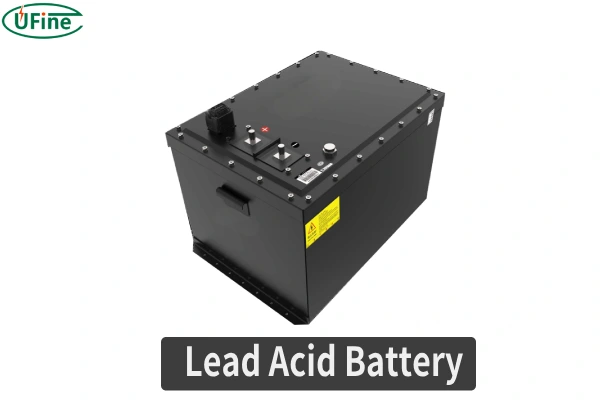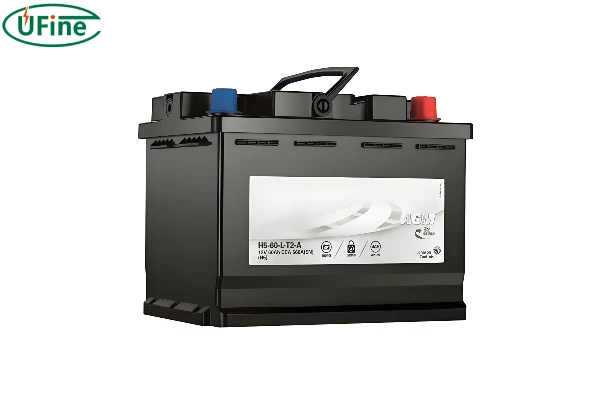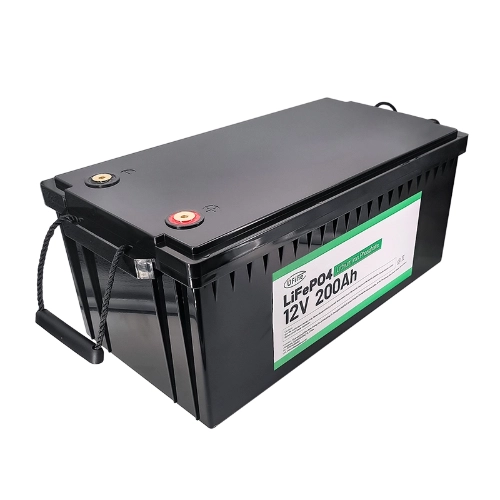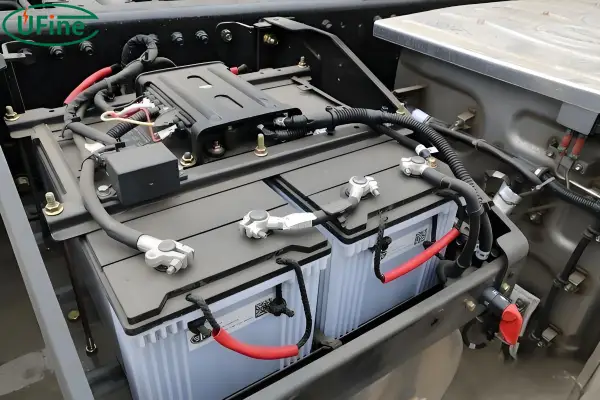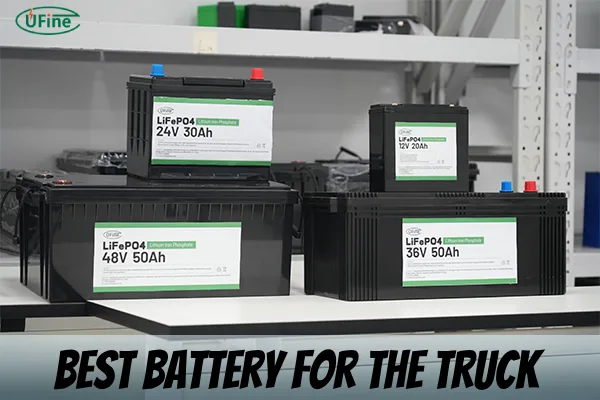Part 1. What does your truck battery need to meet?
Your truck’s battery must meet specific requirements to perform optimally. Let’s break down these key needs:
-
Capacity and Power:
-
The battery must provide sufficient cold cranking amps (CCA) to start the truck’s engine, especially in cold climates. Trucks often require higher CCAs compared to smaller vehicles.
-
A higher reserve capacity ensures the battery can sustain the truck’s electrical systems during prolonged use or emergencies, such as a stalled engine.
-
-
Compatibility:
-
The battery’s physical size and terminal orientation must align with your truck’s requirements.
-
Always check the owner’s manual or consult with a professional to ensure a proper fit.
-
-
Durability:
-
Trucks often operate under heavy loads or on rough terrains, which can strain the battery. Opt for a durable option resistant to vibration and wear.
-
-
Maintenance Requirements:
-
Decide whether you prefer a maintenance-free battery or are comfortable with the upkeep required by flooded lead-acid batteries, such as regularly checking water levels.
-
-
Environmental Adaptability:
-
If you’re operating in extreme weather conditions, choose a battery designed to handle these challenges. For example, AGM batteries excel in colder climates.
-
Part 2. What are the types of truck batteries?
Understanding the types of truck batteries available can help you make an informed decision. Here are the main categories:
Lead-Acid Batteries
- Cost: Generally the cheapest option.
- Weight: Heavy, which can affect overall vehicle weight.
- Lifespan: Typically lasts 2-3 years.
- Maintenance: Requires regular maintenance, including checking water levels.
- Durability: Moderate; can handle basic vibrations and shocks.
- Charging Speed: Slow; takes longer to recharge.
AGM (Absorbent Glass Mat) Batteries
- Cost: Moderately priced; more expensive than lead-acid but cheaper than LiFePO4.
- Weight: Heavy, similar to lead-acid batteries.
- Lifespan: Typically lasts 4-5 years.
- Maintenance: Low maintenance; does not require regular water level checks.
- Durability: High; able to withstand more vibrations and shocks.
- Charging Speed: Medium; charges faster than lead-acid batteries.
- Environmental Impact: Medium; more environmentally friendly than lead-acid.
LiFePO4 (Lithium Iron Phosphate) Batteries
- Cost: Most expensive option.
- Weight: Lightest; significantly lighter than lead-acid and AGM batteries.
- Lifespan: Typically lasts 8-10 years.
- Maintenance: Maintenance-free; requires no upkeep.
- Durability: Very high; extremely durable and can handle significant vibrations and shocks.
- Charging Speed: Fast; charges much quicker than lead-acid and AGM batteries.
- Environmental Impact: Low; more environmentally friendly due to longer lifespan and lack of toxic materials.
Part 3. Comparison of various types of batteries
Let’s compare the features of these batteries to understand their advantages and limitations:
| Feature | Lead-Acid Batteries | AGM Batteries | Lithium-Ion Batteries |
|---|---|---|---|
| Cost | Low | Moderate to High | High |
| Lifespan | 3-5 years | 4-7 years | 10+ years |
| Maintenance | Regular (for flooded type) | Maintenance-free | Maintenance-free |
| Weight | Heavy | Moderate | Lightweight |
| Durability | Moderate | High | Very High |
| Performance in Cold | Good | Excellent | Excellent |
| Environmental Impact | Moderate | Low | Lowest |
Part 4. Which truck battery lasts the longest?
When longevity is your top priority, lithium-ion batteries are the clear winner. They can last over a decade with proper care. AGM batteries follow closely, offering 4-7 years of reliable service. Lead-acid batteries have the shortest lifespan, averaging 3-5 years, but they’re a cost-effective choice for less demanding applications.
Part 5. Which truck battery is the cheapest?
For budget-conscious buyers, lead-acid batteries are the most affordable option. Among them, flooded lead-acid batteries are the least expensive. While they may require more maintenance and have a shorter lifespan, they’re a practical choice for light-duty trucks or those operating in mild climates.
Part 6. What is the best truck battery?
The best truck battery depends on your specific needs and preferences:
- For Budget-Conscious Buyers: Lead-acid batteries are the most affordable option but require more maintenance.
- For Durability and Low Maintenance: AGM batteries offer a good balance between cost, performance, and low maintenance.
- For Longevity and High Performance: LiFePO4 batteries are the best but come with a higher price tag. They are lightweight, durable, and require no maintenance.
Consider your budget, how often you use your truck, and your willingness to perform maintenance when choosing the best battery for your truck.
Part 7. Truck battery price
The price of truck batteries varies widely based on type, capacity, and brand. Here are some common price ranges:
- Lead-Acid: $100 – $200. These are the most affordable but require more maintenance.
- AGM: $200 – $400. These offer a good balance between cost and performance.
- LiFePO4: $500 – $1,000. These are the most expensive but offer the best performance and longest lifespan.
Several factors influence the price of truck batteries, including:
- Capacity: Higher capacity batteries cost more due to their ability to store more energy.
- Brand: Established brands often charge more due to their reliability and warranty offerings.
- Technology: Advanced battery technologies like AGM and LiFePO4 are more expensive due to their superior performance and longevity.
Part 8. Key considerations for buying best truck batteries
To find the best truck battery, take these factors into account:
-
Vehicle Requirements:
-
Always consult the truck’s manual to determine the recommended battery size, CCA, and reserve capacity.
-
-
Climate:
-
If you’re in a region with extreme cold or heat, choose a battery designed to perform well in such conditions.
-
-
Usage Patterns:
-
For trucks with heavy-duty applications or extensive electronic systems, an AGM or lithium-ion battery is often worth the investment.
-
-
Brand and Warranty:
-
Trusted brands offer quality assurance, and a strong warranty protects against manufacturing defects.
-
-
Cost vs. Performance:
-
While premium batteries cost more upfront, their durability and performance can save money in the long run.
-
Part 9. 5 Famous truck battery brands
-
Ufine Battery::
-
A famous Chinese custom lithium battery manufacturer that provides lithium batteries for various trucks.
-
They specialize in customizing truck lithium batteries with different voltages, sizes, and capacities to meet diverse customer needs.
-
-
Exide:
-
A well-known brand offering a wide range of affordable lead-acid and AGM batteries.
-
A trusted choice for reliability and cost-effectiveness.
-
-
Odyssey:
-
Specializes in premium AGM batteries with high CCA ratings and extended lifespans.
-
Ideal for trucks operating in extreme conditions.
-
-
DieHard:
-
Offers reliable and maintenance-free batteries, including AGM and enhanced flooded options.
-
Known for their extensive warranties and widespread availability.
-
-
ACDelco:
-
Offers high-quality batteries at competitive prices, trusted by mechanics and vehicle owners alike.
-
-
Optima:
- Renowned for their spiral-cell AGM technology, which offers superior durability and vibration resistance.
-
Popular for high-performance and off-road vehicles.
Part 10. Where to buy?
You can find truck batteries at several locations, each with its own advantages:
-
Automotive Stores:
-
Retailers like AutoZone, Advance Auto Parts, and NAPA Auto Parts stock a wide variety of batteries.
-
They often provide installation services.
-
-
Online Retailers:
-
Websites like Amazon, Walmart, and dedicated battery shops offer competitive pricing and convenience.
-
Many online retailers provide customer reviews to help you make an informed decision.
-
-
Dealerships:
-
Although pricier, dealerships guarantee compatibility and offer batteries tailored for your truck model.
-
-
Local Mechanics and Garages:
-
Many repair shops sell and install batteries, providing a one-stop solution.
-
-
Warehouse Clubs:
-
Stores like Costco and Sam’s Club often offer discounts, especially for members, making them a cost-effective option.
-
Related Tags:
More Articles

How to Choose the Best Floor Scrubber Battery for Commercial Cleaning?
Selecting the ideal floor scrubber battery ensures a long runtime, rapid charging, and minimal maintenance for efficient commercial cleaning operations.
Battery for Blower vs Battery for Leaf Vacuum: Which One Should You Choose?
Battery for blower vs leaf vacuum—learn the key differences in power, fit, and runtime to choose the right battery for your outdoor tool needs.
How to Choose the Right Battery for Blower?
Choosing the right blower battery? Consider voltage, capacity, chemistry & usage. This guide helps match the best battery for peak performance.
How to Choose the Best Insulated Battery Box for Lithium Batteries?
Choosing the Best Insulated Battery Box for Lithium Batteries? Discover key factors such as size, material, and safety for optimal protection and performance.
7 Critical Elements on a Lithium Battery Shipping Label
What must be on a lithium battery shipping label? Learn 7 key elements to ensure safety, legal compliance, and correct handling across all transport modes.

